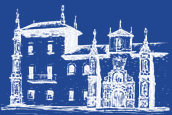Abstract
In preparation for the 1980 U. S. Census, the U.S. Census Bureau revamped considerably the way it defined, collected, and reported the ancestry of the American population. A long form of the census schedule was developed for application to one in six households. Prior to 1980, Basques were masked under Spanish nationals and French nationals in the final census reports and Basque-Americans were not distinguished at all. This article considers how Basque ethnicity came to be parsed and reported in three fashions—“Basque, Spanish,” “Basque, French,” and “Basque, n.e.c.” (e.g. “not elsewhere classified”). So it was now possible for Americans to claim Basque ancestry regardless of their birthplace. For scholars of the Basque-American diaspora, the census went from being largely useless to a satisfying analytical tool. However, there have been additional changes in the reporting of ancestry in both the 2000 and 2010 censuses. While the tripartite distinctions are still employed during collection, the responses are currently aggregated into a single Basque category in the reporting process. Consequently, the U. S. census still provides an overview of the population that self-identifies as Basque, but with less precision than did the last two censuses of the 1900s.
DOI
https://doi.org/10.18122/B2W12S
Recommended Citation
Douglass, William A.
(2016)
"Calculating Ethnicity Through the U.S. Census: The Basque Case,"
BOGA: Basque Studies Consortium Journal: Vol. 4
:
Iss.
1
, Article 1.
https://doi.org/10.18122/B2W12S
Available at:
https://scholarworks.boisestate.edu/boga/vol4/iss1/1


About the Author
William A. Douglass, world-renowned scholar of Basque studies and the founder of the Basque Studies Program (now Center for Basque Studies at the University of Nevada, Reno). A pioneer in Basque Studies his publications are in the hundreds with articles, conference presentations, edited volumes and monographs starting with his doctoral research in the Basque Country that yielded Death in Murelaga: Funerary Ritual in a Spanish Basque Village (1969). He is coauthor (with Jon Bilbao) of Amerikanuak. Basques in the New World (1975), the iconic work in the foundation of Basque Diaspora Studies. Retiring as coordinator of the program after 33 years, he nevertheless continues researching and writing, producing Global Vasconia in 2004. Recipient of numerous awards, including “Leading Researcher” and “Best Professor” at the University of Nevada, Reno, and the prestigious “Lagun Onari” by the Basque Government. See more at https://basque.unr.edu/academics-people-douglass.html
Education: Ph.D. Social Anthropology, University of Chicago